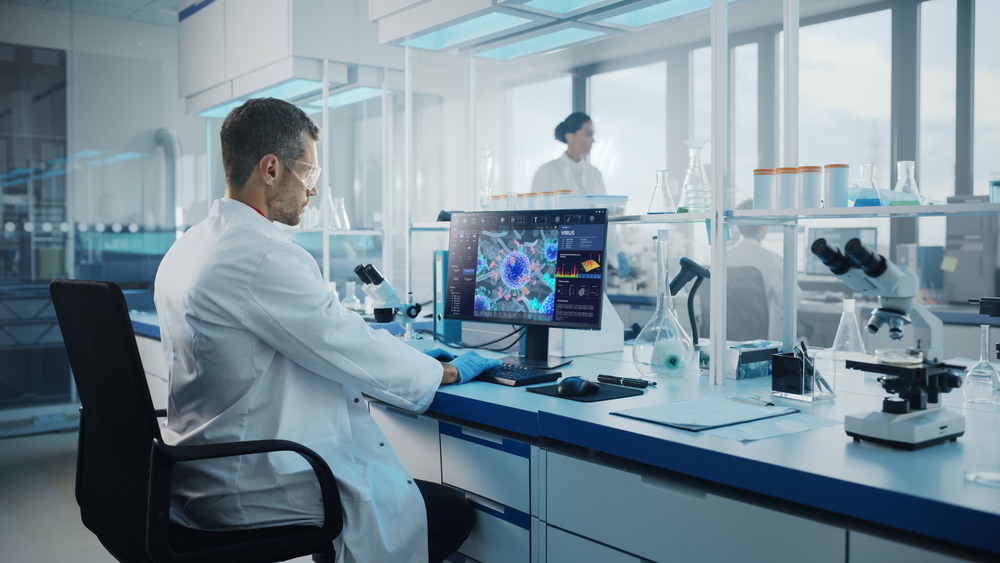Portugal with record number of projects in ERC Advanced Grants call

The European Research Council (ERC) announced today, 30 March, the results of Advanced Grants 2022 call, in which four projects of researchers from Portuguese institutions and one project of a Portuguese researcher working abroad were selected. The four Portuguese projects raise a total of 11.5 million euros in European funding, which represents 2.1% of the total funding allocated to the 218 projects selected in this call.
The Advanced Grants of the ERC are aimed at researchers who, in the last 10 years, have an outstanding track record both in terms of scientific production and in mentoring young researchers. The result of this 2022 edition represents a new record for Portugal, with 4 projects in a single Advanced Grants call . In comparative terms, throughout H2020, the previous R&I Framework Programme for the period 2014-2020, Portugal had managed 8 approved projects in the 7 calls of the Advanced Grants. In the two calls of Horizon Europe so far, Portugal has already managed 7 approved projects.
FCT congratulates not only the selected researchers, but also those whose applications were evaluated as high quality but did not get funding. FCT, through its ERC-Portugal program, also seeks to recognize the merit of these applications through a specific support that allows to start the development of the proposed research project and thus improve the conditions for a future application to the ERC. The ERC-Portugal program is open to applications on a continuous basis.
Researchers and projects awarded at the Advanced Grants call of 2022:
Henrique Veiga Fernandes, from the Champalimaud Foundation, proposes to study how the nervous system and the immune system coordinate in response to processes of infection and inflammation. This interaction between the nervous system and the immune system is very important in detecting and responding to external threats. However, the mechanism and detail of these interactions is not yet sufficiently understood. A better understanding could potentially allow the development of new treatments.
Isabel Gordo, from the Gulbenkian Science Institute, will study how the populations of microorganisms that live in the intestines of mammals evolve. The diversity of bacteria in the intestines plays an important role in maintaining health and disease. However, the mechanisms of natural selection that act to give rise to these microbial populations in the gut are still poorly understood. The team will seek to further elucidate these mechanisms, as well as the role of bacterial diversity in host health status.
Maria Manuel Mota, from the João Lobo Antunes Institute of Molecular Medicine, will study how the malaria parasite replicates in the liver. Malaria is a disease caused by a parasite, which is transmitted by mosquitoes. The parasite has a high replication rate in liver cells, and then infects blood cells, leading to the disease. The researcher proposes to study the causes of such a high replication rate of the parasite in the liver, as well as its genetic diversity, and the role of these two factors in the severity of the disease. This knowledge may allow the identification of new targets and tools to fight malaria.
Mariana Pinho, from Universidade Nova de Lisboa, proposes to study the cell cycle of bacteria, namely the way they divide and multiply, in order to develop new types of antibiotics. Bacterial populations, through a process of evolution, are capable of developing resistance to antibiotics, particularly in cases where these antibiotics have only one target. The proposed research aims to understand some poorly understood components of the bacterial cell cycle, with a view to identifying new targets for new antibiotics that can interfere with this cycle and prevent bacterial replication.
Gonçalo Castelo-Branco, from the Karolinska Institute, in Sweden, proposes to study genetic factors associated to the risk of multiple sclerosis. Multiple sclerosis is an autoimmune disease characterized by an attack from the immune system itself to a type of cells of the central nervous system (oligodendrocytes) and, in particular, to the myelin layer that surrounds them. The research team will study the genetic variations of these central nervous system cells and their role in the development of the disease, with a view to the future development of new therapeutic strategies.
With the outcome of this ERC call, research carried out in Portugal increases the funding raised under the ERC to around 65 million euros and in all types of calls - Starting, Consolidator, Advanced, Synergy, Proof of Concept -, since the beginning of Horizon Europe (2021-2027). This funding is spread among 42 projects led by Portugal and in the three scientific areas of the ERC: Life Sciences, Exact Sciences and Engineering, and Social Sciences and Humanities.